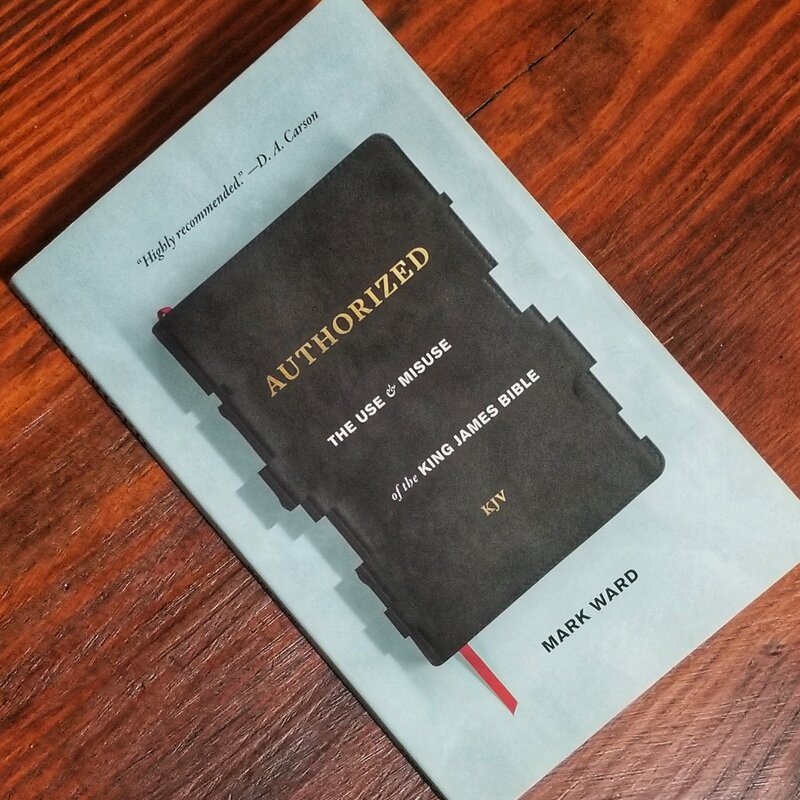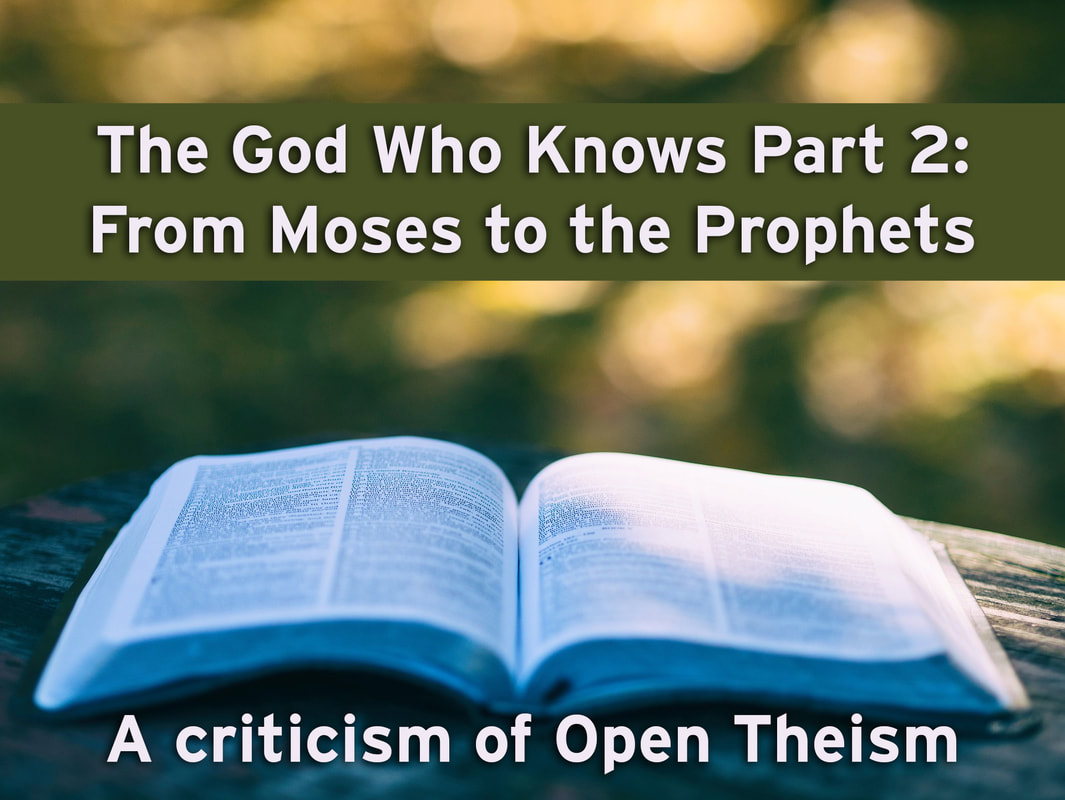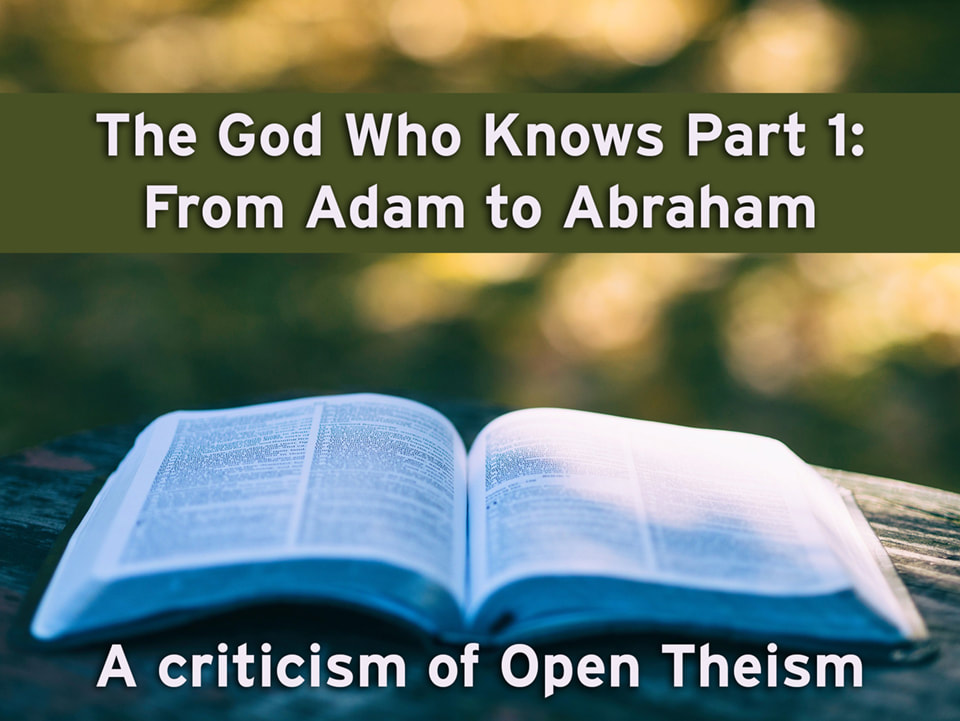|
Over the past few years, I've had several friends ask me for my opinion of Mark Ward's book Authorized: The Use & Misuse of the King James Bible. I read the book after the first request, and I found Ward's arguments to be both shallow and false. My position on the KJV is that it is currently the most accurate English translation of the purest Greek and Hebrew texts. I hold to that position for a variety of reasons drawn from my studies of theology, history, etymology, and linguistics. I expected Ward's book to present an intellectual challenge to my position. What I found instead was a childish and pedantic collection of arguments that did more to prove the ignorance of the author than to support his claims.
2 Comments
This is one of the weakest contradiction claims that I've seen, but it seems to be one that trips up a lot of young Christians. Those responding to this claim often get off into the weeds of discussing the Trinity which is a fine topic of conversation, but it's a bit too complex to adequately discuss in a social media feed. Here is a much simpler but still effective response that we can give to the claim that Genesis 32:30 contradicts John 1:18. It's easy to see that the Calvinist's view of Eph. 2:8-9 is wrong when you compare it to Rom. 3:24. The faith of the individual in Eph. 2:8 precedes the application of grace just as the redemption in Rom 3:24 precedes the application of grace in that passage.
My family doesn't celebrate Santa Claus at Christmas. We don't put Santa decorations in our house or on our lawn. We never told our son that Santa would bring him presents. We never took him to get pictures with Santa. In fact, the first time our son saw someone dressed up like Santa, he thought it was someone dressed as Moses because all the story book drawings of Moses depict him having a long white beard and wearing a robe. And yes, I was one of those evil parents who encouraged my son to tell other kids that Santa isn't real. Santa has never had a place in our home, and he never will.
Every game has a set of rules that govern how the gameplay proceeds.
In Super Mario Bros., for example, there is a rule that jumping on a Goomba will kill it and a corresponding rule that if a Goomba runs into you it will kill you. You will have a very difficult time trying to win in Super Mario Bros. by running into Goombas, and your game will proceed much smoother if you try to win by jumping on the Goombas instead. You could argue that those who choose the latter are more privileged than those who choose the former, but that is solely the fault of those who choose to ignore the instruction book and attempt to play by their own rules. This is part two of my review of the book The God Who Risks by John Sanders. (Part one can be read here.) Sanders is an Open Theist who claims that God does not have exhaustive knowledge of the future and that He learns things and changes over time. I believe that this idea contradicts Scripture which teaches that God knows everything that will happen in the future, that He does not learn new things because He already knows everything, and that He does not change.
About a week ago, I wrote a quick blog post sharing my thoughts as I watched a video on Open Theism. The creator of that video, Warren McGrew, decided to reply to my criticism by inviting Dr. Alan Rhoda to take part in a two-hour live critique of my blog post. I wasn't planning to write anything more on Open Theism (except Part 2 of my analysis of The God Who Risks which is being edited now), but I had some free time this afternoon, so I figured I would respond to this video too. Open Theists claim that God does not have exhaustive knowledge of the future and that He learns things and changes over time. This philosophy was developed primarily as a response to Calvinistic determinism, and most of the discussion on the topic have focused on the differences between Open Theism and Calvinism. I do not hold to either view, and I was content to let them bicker among themselves until I received several requests from friends asking me why I reject Open Theism. I decided to answer their requests by reading the best books I could find from Open Theist authors and writing point-by-point responses to the Open Theist claims.
A friend of mine requested that I watch and respond to the above video about open theism. Open theism is the belief that God does not know everything that will actually happen in the future. On this view, God knows every possible future, but He does not know which of those possibilities will eventually be a reality. This view is fraught with errors, but for this post, I am going to limit myself to offering my rough and unfiltered commentary in response to the claims made in the video.
On January 30, 1750, Jonathan Mayhew stood in the pulpit of Old West Church in Boston and preached what was to become one of the most famous sermons in history. The occasion was the 101st anniversary of the death of King Charles I. The challenge that Mayhew addressed before his congregation was the question of whether rebellion against a tyrant was a violation of the Bible's command in Romans 13 for Christians to submit to political rulers.
|
Bill Fortenberry is a Christian philosopher and historian in Birmingham, AL. Bill's work has been cited in several legal journals, and he has appeared as a guest on shows including The Dr. Gina Show, The Michael Hart Show, and Real Science Radio.
Contact Us if you would like to schedule Bill to speak to your church, group, or club. "Give instruction to a wise man, and he will be yet wiser: teach a just man, and he will increase in learning." (Proverbs 9:9)
Search
Topics
All
Archives
June 2024
|










 RSS Feed
RSS Feed